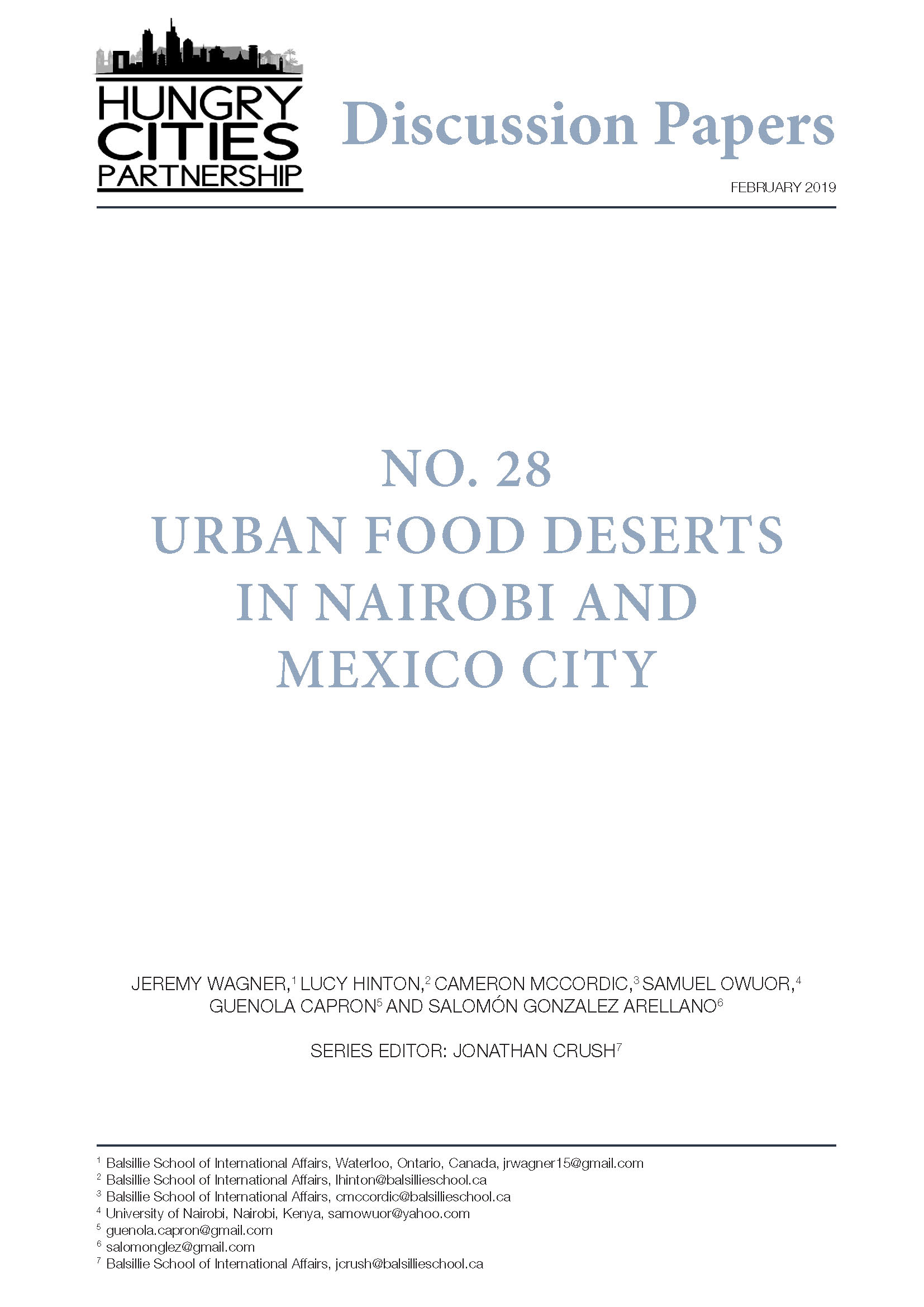Recent conceptualizations of “food deserts” have expanded from a sole focus on access to supermarkets, to food retail outlets, to all household food sources. Each iteration of the urban food desert concept has associated food sourcing behaviour in relation to household poverty, food insecurity, and dietary diversity characteristics. While the term continues to evolve, there has been little empirical evidence to test whether these associations hold in cities of the Global South. This discussion paper empirically tests the premises of three iterations of the urban food desert concept using household survey data collected in Nairobi, Kenya, and Mexico City, Mexico. While these associations are statistically significant and show the expected correlation direction between household food sourcing behaviour and food security, the relationships tend to be weak with limited spatial patterning. These findings indicate that the urban food desert concept developed in North American and UK cities may have limited relevance to explaining urban food insecurity in the Global South.

